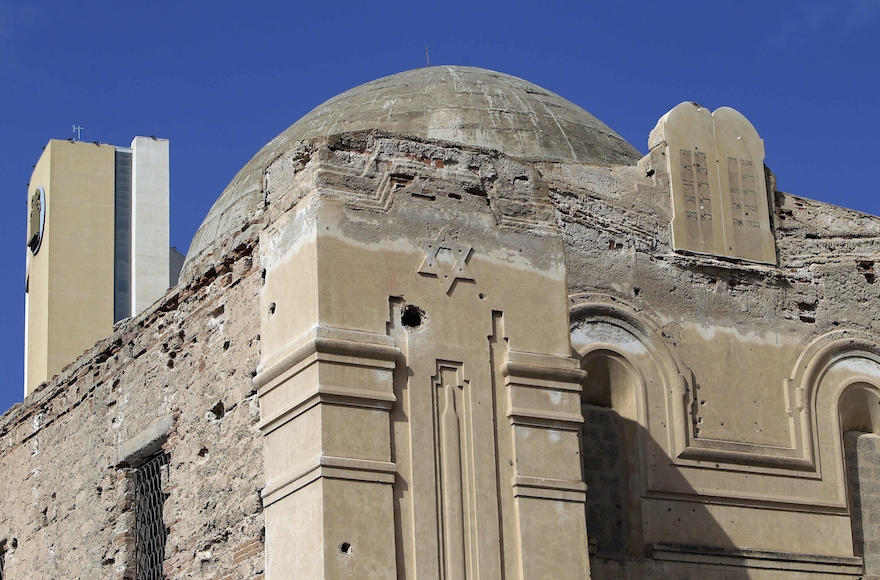(JTA) — Though the United States recently barred Libyan artifacts from entering the country, certain Jewish artifacts are exempt from the agreement, the State Department clarified.
Last month, the United States agreed to a request from Libya to bar certain Libyan artifacts from entering the country. Intended to prevent pillaging of artifacts and their sale on the black market, the agreement applied to artifacts dated 1911 and earlier. The original request by Libya, submitted last year, asked for Jewish artifacts to be included.
Activists decried the agreement, saying it gave ownership to Libya over objects, such as antique Torah scrolls, tombstones and books, taken from Libyan Jews, all of whom were forced to flee the country in the 20th century amid public and state-sponsored anti-Semitism.
However, a State Department official told JTA on Tuesday that certain Jewish artifacts were not included in the agreement, among them Jewish ethnological material — objects less than 250 years old. The official said Jewish archaeological material — artifacts dating from 12,000 BCE to 1750 CE that are found through archaeological digs — are included. It means that Jewish ritual items made after 1768 can brought into the country.
The original Libyan request specifically mentioned Jewish ethnological materials, according to a summary. (The original request is not available publicly.)
In making its decision, the State Department looked at which types of material were under threat of pillaging and took into account comments by outside parties, including the Jewish community, the official said. The State Department determined that while Libyan archaeological materials, including Jewish objects, were under the threat of looting, “insufficient evidence was available to show that certain categories of ethnological material, including Jewish ethnological material, were in similar jeopardy.” The import restrictions cover Ottoman-era ethnological material from Libya.
The State Department emphasized that the agreement “does not determine or confer ownership of materials subject to import control.”
The United States has similar agreements with 17 countries, including one reached in 2016 with Egypt. Congress also has passed emergency laws restricting artifacts from Iraq and Syria from entering the country. Such laws draw on a 1970 UNESCO convention that allows for the placing of import and export restrictions in cases where a country’s patrimony is under threat of pillaging and its artifacts in danger of entering the black market.
There is “heightened interest in the region in seeking similar MOUs,” or memorandums of understanding, the State Department official said.
JTA has documented Jewish history in real-time for over a century. Keep our journalism strong by joining us in supporting independent, award-winning reporting.






